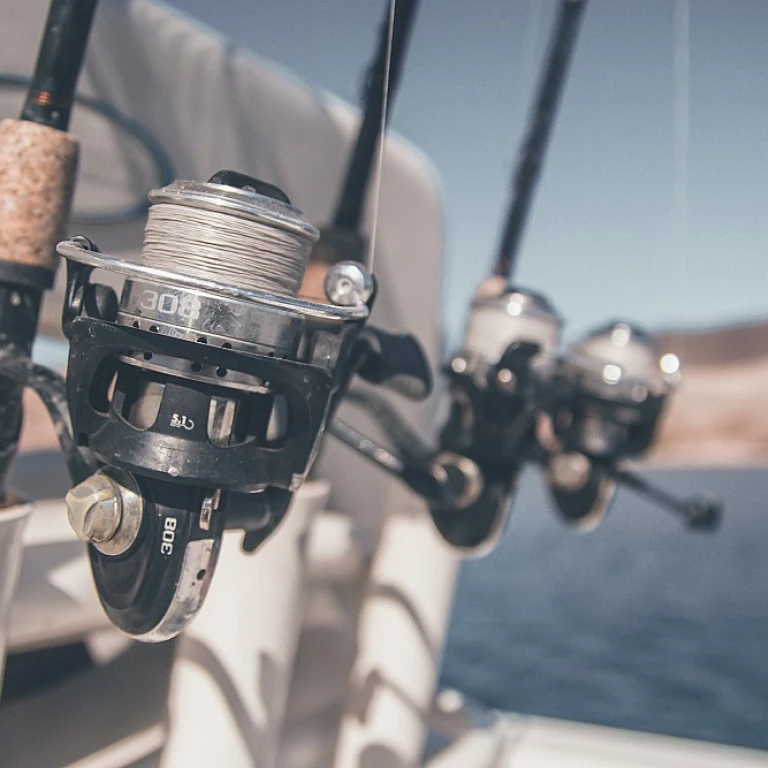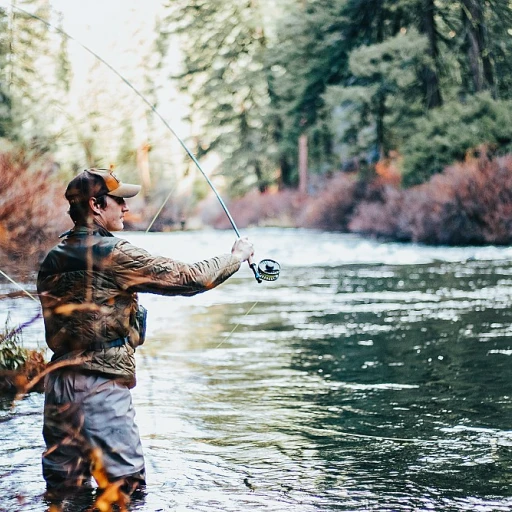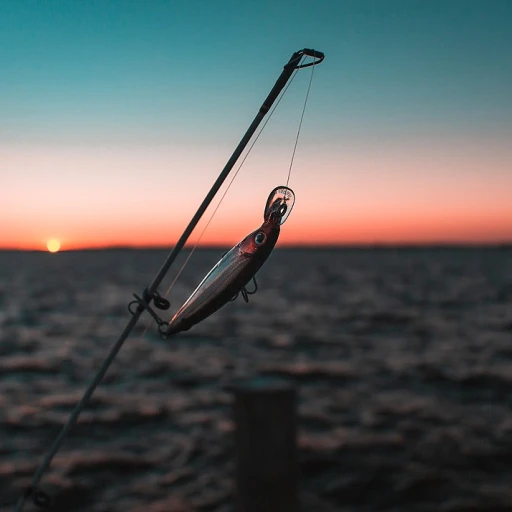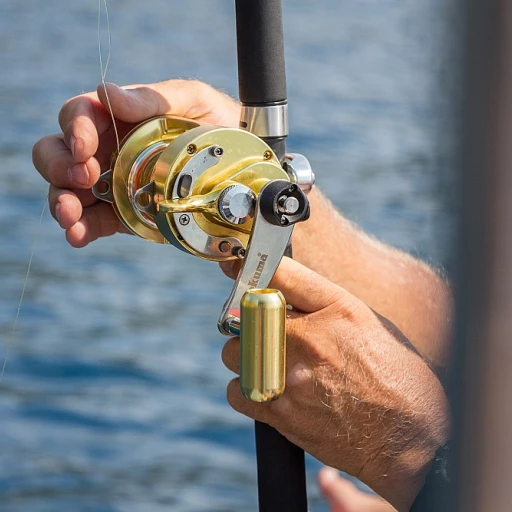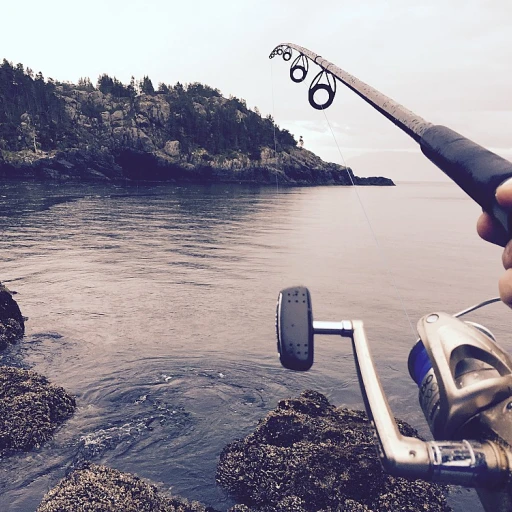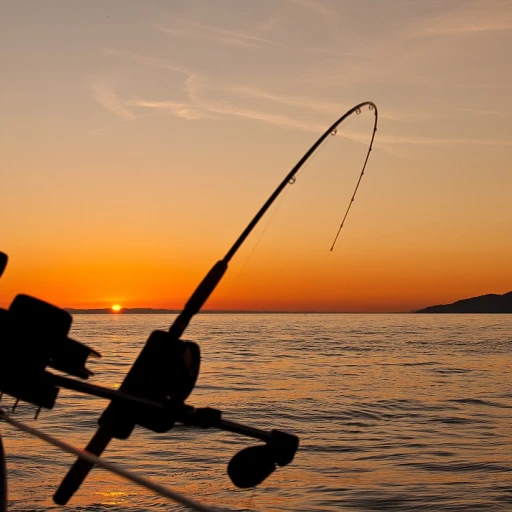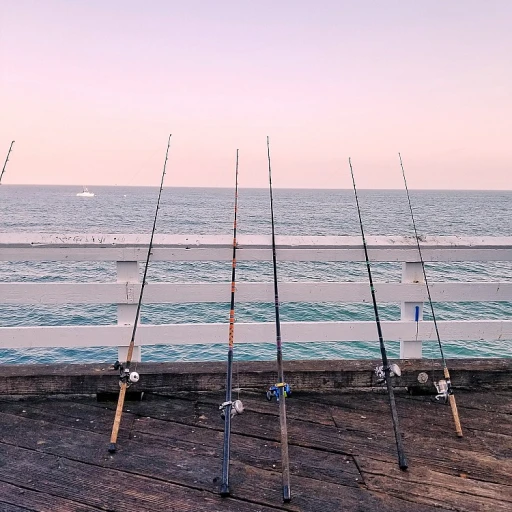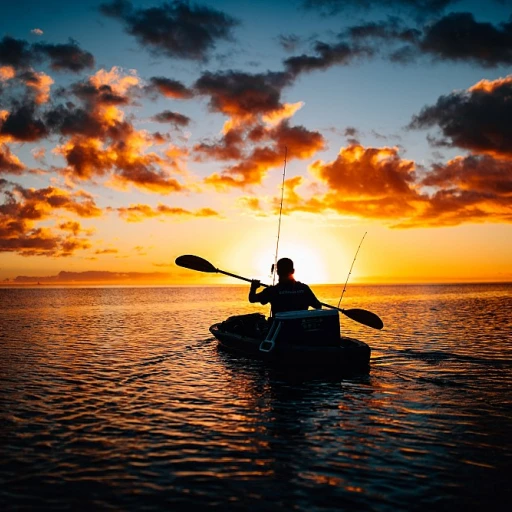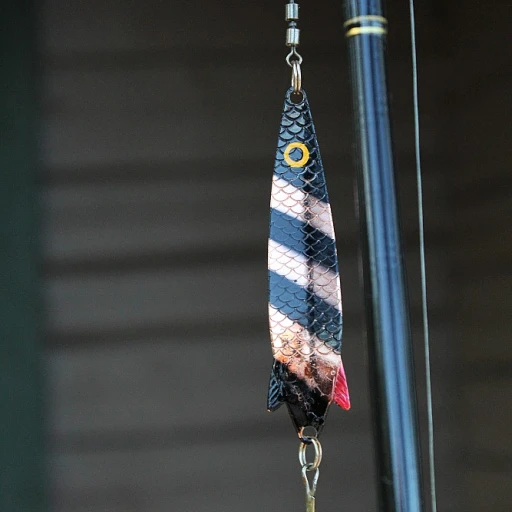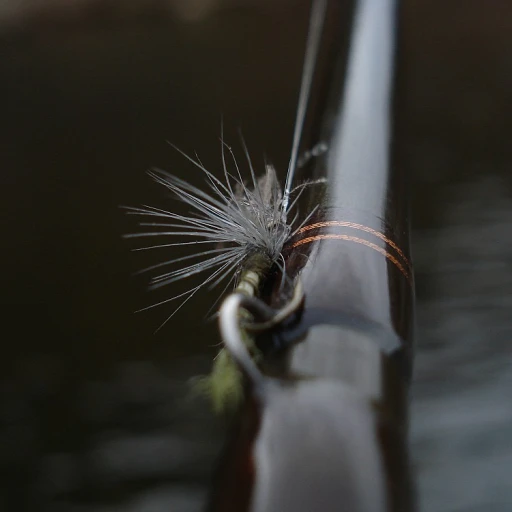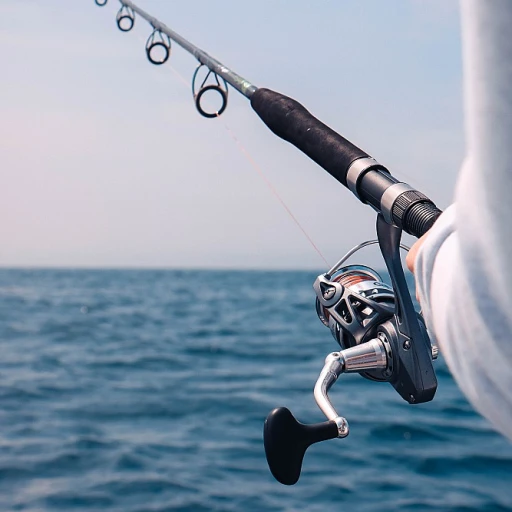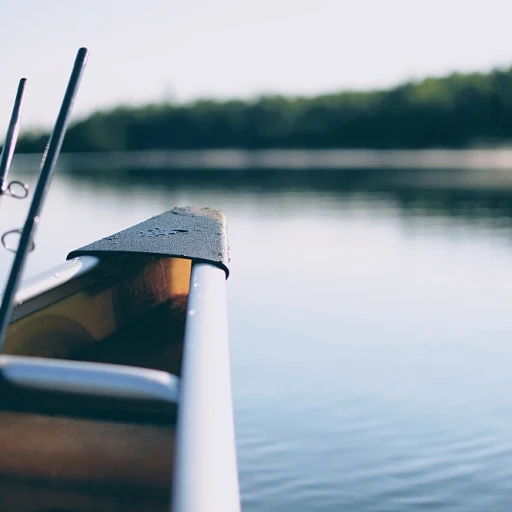
The largest fish ever caught: an overview
Top giants that made history
When it comes to the biggest fish ever caught in the world, the stories and records are as vast as the ocean itself. Topping the chart of these aquatic behemoths, we have the magnificent great white shark caught by Alfred Dean off the coast of Ceduna, Australia, in 1959. This massive predator weighed a jaw-dropping 2,664 pounds (1,208 kg) and remains, to this date, one of the most significant milestones in big game fishing history. The incredible journey of giant catches like these continues to inspire anglers worldwide.
Unveiling the oceanic titans
Another monster of the deep that has secured its place in the record books is the blue marlin caught by Paulo Amorim off the coast of Vitoria, Brazil, in 1992. This gigantic fish weighed 1,402 pounds (636 kg) and was a testament to the extraordinary scale of deep-sea fishing. The International Game Fish Association (IGFA) was there to verify this colossal catch, cementing its place in the annals of fishing history.
Legendary freshwater champions
Not all record-breaking fish are from the ocean. Freshwater giants also hold their own legendary status. In 2005, a Mekong giant catfish weighing 646 pounds (293 kg) was caught in northern Thailand, making headlines around the globe. This species, known for its immense size and elusive nature, has fascinated anglers and researchers alike. The largest freshwater fish known to science, the Mekong giant catfish, remains a symbol of the vibrant and diverse nature of freshwater ecosystems.
Global hotspots for record fish
Certain locations are famous for producing world-record catches. Cabo Blanco, Peru, for instance, has been the site of numerous giant fish catches, including the 1953 black marlin weighing 1,560 pounds (707 kg) caught by Alfred Glassell Jr. Another noteworthy location is Nova Scotia, where Ken Fraser caught a 1,496-pound (679 kg) bluefin tuna in 1979, a record that still holds today. These hotspots have become pilgrimage sites for avid anglers chasing the next record-breaking catch.
Record-breaking catches: the giants of the sea
The giants of the sea: record-breaking catches
When talking about record-breaking catches, the sheer size and weight of these aquatic beasts truly boggles the mind. Over the years, anglers have dedicated countless hours and resources to catch some of the biggest fish ever caught in the world. Let's take a closer look at some of these awe-inspiring giants.
One of the most famous record-breaking catches is the great white shark. The largest specimen ever caught by rod and reel weighed an astounding 2,664 pounds, or 1,208 kilograms! This immense creature was caught by Alfred Dean off the coast of Ceduna, Australia, back in 1959. It's no wonder the great white shark, with its size and predatory nature, continues to fascinate anglers and ocean enthusiasts alike.
Not far behind in the record books, the Atlantic blue marlin holds a prominent position. In 1982, angler Paulo Amorim captured a colossal 1,402-pound (636 kilograms) specimen off Vitoria, Brazil. This catch remains one of the most talked-about feats in the fishing world.
Another legendary giant from the ocean is the Pacific blue marlin. Renowned angler, Jay de Beaubien, set a record in 1982 with a massive 1,376-pound (624 kilograms) marlin off of the coast of Kona, Hawaii. These marlins are not only known for their size but also for their acrobatic fights, making them a prized target for game fish enthusiasts.
The freshwater fishing realm also boasts its own giants. The mekong giant catfish, for instance, holds the record for the largest freshwater fish ever caught. This mystifying species was caught in Northern Thailand in 2005 and weighed a staggering 646 pounds (293 kilograms). Fresher than saltwater catches, these fish are a testament to the diversity and richness of our freshwater bodies.
Meanwhile, the record for the largest bluefin tuna ever caught is held by Ken Fraser. In 1979, Fraser captured a colossal 1,496-pound (679 kilograms) bluefin tuna off the coast of Nova Scotia, Canada. This monumental record still stands today and highlights the exciting and competitive nature of tuna fishing.
For more details on the biggest tuna ever caught and other record-breaking giants of the sea, visit this insightful article. Every catch has its story, and these giants of the ocean and freshwaters bring tales of adventure, persistence, and sheer excitement.
Freshwater giants: the biggest freshwater fish ever caught
Unbelievable freshwater monster catches
The freshwater world has its own giants that can leave you completely gobsmacked. Imagine reeling in a fish so big it breaks every known record—unbelievable, right? But that's what anglers around the globe live for, those moments when freshwater monsters rise from the depths.
Take, for instance, the massive mekong giant catfish of Southeast Asia. The largest one ever caught weighed a whopping 646 pounds. According to the International Game Fish Association (IGFA), this catch still holds the title for the biggest freshwater fish ever recorded.
Famous freshwater champions
Ken Fraser is another name etched in the history of record-breaking fish. In Canada, many still talk about the Atlantic Blue Marlin he caught, but his achievements in freshwater can't be ignored either. The wels catfish often found in Europe is another example of a freshwater giant. With specimens recorded at over 300 pounds, this species challenges anglers in places like Spain, Italy, and Norway.
Anglers in the United States have their own freshwater legends, too. The pacific blue marlin may steal the spotlight in saltwater, but the alligator gar is a king of freshwater zones. Weighing up to near 300 pounds, these prehistoric fish can easily be mistaken for river monsters.
The importance of location
Knowing where to find these giants is pivotal. Thailand and the Mekong River? Home to the infamous mekong giant catfish. Europe's broader river systems? They're flourishing grounds for the wels catfish. Norway's fjords host some of the most massive freshwater fish species you can imagine.
Fishing gear and tackle
And let's not forget the gear. Catching a freshwater giant isn't about luck alone; it's about having the right rod and reel that can handle the monumental task. High-tensile lines, robust reels, and specialized hooks are essential. Ask any experienced angler, and they'll tell you that your gear makes all the difference when battling a freshwater behemoth.
Freshwater records worth noting
From the incredible 300-pound alligator gar to the nearly 650-pound mekong giant catfish, these records are testaments to the size and strength residing in freshwater. The fascinating thing is, many of these records remain unbroken, standing as legends in the fishing world. Anglers everywhere are constantly on the lookout for new spots, improved techniques, and better gear in their quest to break these records.
For those of us who revel in fishing lore, record-breaking catches are not just stories; they're milestones that fuel ambitions and give us a reason to cast another line.
The role of the International Game Fish Association (IGFA)
Establishing credibility and setting standards
The International Game Fish Association (IGFA) is the backbone that supports the credibility of record-breaking catches in the fishing community. Founded in 1939, the IGFA is dedicated to the conservation of game fish and the promotion of responsible, ethical angling practices. The association plays a pivotal role in documenting and authenticating world record catches, ensuring that anglers pursue their passion in a manner that honors the sport and the environment.
Certification processes and rules
To achieve an IGFA world record, an angler must adhere to stringent rules and guidelines. This meticulous certification process starts with the submission of a detailed application, including photographic evidence, witness statements, and the weight and measurements of the catch. The fish must be weighed on a certified scale, and the angler must use IGFA-approved tackle and line strength. For instance, Ken Fraser's 1,496-pound bluefin tuna caught off Nova Scotia in 1979 remains one of the most impressive records to date, courtesy of strict adherence to IGFA standards.
Categories of records and notable examples
The IGFA maintains records across various categories, including line class, all-tackle, fly fishing, and junior records. Notably, Alfred Dean's 1959 record of a 2,664-pound great white shark caught off the Australian coast still stands as the largest fish ever caught on rod and reel. On the freshwater side, the Mekong giant catfish holds the record as the world's largest freshwater fish, with an astounding weight of 646 pounds.
Conservation efforts and angler responsibility
Beyond record certification, the IGFA emphasizes conservation and the sustainable practice of catch-and-release fishing. IGFA's angler education programs and research initiatives aim to protect fish populations and their habitats. As John Frazier, a notable IGFA expert, once stated, "Preserving fish populations for future generations is a responsibility that every angler must shoulder."
Global recognition and impact
The IGFA's influence extends globally, with offices and representatives across continents. Whether it's the giant pacific blue marlin from Cabo Blanco, Peru, or the massive wels catfish from Italy, IGFA's stamp of authenticity is recognized worldwide. The association's commitment to ethical angling has fostered a community that respects both the sport and the aquatic ecosystems.
Famous anglers and their record-breaking catches
Profiles in fishing fame: The anglers behind the records
In the world of record-breaking fishing, the tales of legendary anglers are just as captivating as the fish they catch. These anglers have their names etched in history, not just for their impressive catches, but for their dedication, skill, and sometimes a bit of luck. Let's dive into the stories of some famous anglers who have left a mark on the sport of fishing.
Alfred Dean: The great white shark maestro
Alfred Dean, an Australian, made headlines in 1959 with his phenomenal catch off the coast of Ceduna. He captured a great white shark that weighed in at an astounding 2,664 pounds (1,208 kg) using rod and reel, setting a record that remains unbroken. This incredible feat showcased not just the sheer size of the fish but also Dean's remarkable skill and perseverance.
Dean’s record has inspired countless anglers to chase after titanic marine giants, but his combination of knowledge, technique, and perhaps even the ideal conditions of that day have kept his record safe for decades.
Ken Fraser's triumph over the bluefin tuna
Another name that stands out in the annals of fishing history is Ken Fraser. In 1979, Fraser set the world on fire with his record-breaking bluefin tuna catch off Nova Scotia. His monster capture weighed 1,496 pounds (679.2 kg). His story isn’t just about the size of the fish but about the meticulous planning and expertise required to battle such a colossal creature.
Fraser’s tale is a classic in the fishing community, embodying the triumphs and tribulations of hardcore anglers. To learn more about these oceanic giants, check out our article on biggest tuna ever.
Paolo Cavazzuti and his unforgettable wels catfish
Paolo Cavazzuti from Italy stunned the fishing world in 2010 when he captured an enormous wels catfish from the River Po in Italy. The fish weighed an incredible 280 pounds (127 kg), making it one of the largest freshwater fish ever caught.
Cavazzuti’s success has attracted anglers from around the globe to the River Po, turning it into a pilgrimage site for those dreaming of their own record-breaking catch.
The anglers of IGFA: Guardians of fishing records
The International Game Fish Association (IGFA) plays a pivotal role in maintaining these records. It's a reference point for credibility and standardization in the fishing realm. Anglers like Alfred Dean, Ken Fraser, and Paolo Cavazzuti owe part of their fame to the rigorous documentation and recognition provided by IGFA.
The IGFA has been instrumental in preserving the integrity of these records by verifying and validating the catches, ensuring that each new record is celebrated appropriately.
The science behind catching giant fish
Deep-sea giants: why location matters
When it comes to landing the biggest fish ever caught in the world, the location where you cast your line is critical. Just look at some of the most renowned record holders. These giants of the sea often reside in specific habitats, and knowing where to find them can be the difference between a good day and a record-breaking day. For instance, the infamous 3,427-pound great white shark caught by Alfred Dean in 1959 was reeled in off the coast of South Australia. The warm waters and abundant food sources create a perfect environment for these predators to thrive, making it a hotspot for anglers chasing records.
Asian rivers: a haven for giant catfish
In freshwater fishing, Asia, particularly Thailand, is famous for its giant catfish. The Mekong Giant Catfish, weighing in at around 646 pounds, holds the title for the largest freshwater fish ever caught. But why exactly do these rivers produce such behemoths? The Mekong River's unique ecosystem, dense with nutrients and a wide variety of smaller fish, provides an ideal breeding ground for these giant catfish to grow to record-breaking sizes.
Tools of the trade: specialized gear for the giants
Successfully catching these aquatic giants requires more than just skill—it demands specialized equipment. The role of advanced fishing tackle cannot be overstated. For example, when Ken Fraser caught the 1,496-pound Atlantic bluefin tuna off Nova Scotia in 1979, he relied on heavy-duty rods and reels specifically designed to handle the tremendous pull of such a colossal fish. Modern gear has only improved, incorporating materials and technologies that offer strength and flexibility, critical for landing record-breaking catches.
The waiting game: patience and persistence
Catching these massive fish isn't just about having the right gear or being in the right place; it’s also about having the right mindset. Patience and persistence are crucial. Take the case of Alfred Dean with his famous great white shark catch; Dean spent hours battling the fish before finally bringing it aboard. Similarly, Ken Fraser's bluefin tuna required a grueling 45-minute struggle. This endurance isn’t just physical; it’s mental, requiring a combination of focus, strategy, and resolve to outlast these aquatic titans.
The science of luring: understanding fish behavior
A deeper scientific understanding of fish behavior can also give anglers an edge. Fish are creatures of habit, and learning these habits can make a huge difference. The International Game Fish Association (IGFA) provides a wealth of information on fish behavior and migration patterns, helping anglers target their prey more effectively. For example, studies have shown that tuna often follow specific migratory routes based on water temperature, currents, and food availability. Knowing these routes allows anglers to position themselves strategically, increasing their chances of landing a giant catch.
Environmental impact: balancing sport and sustainability
While the pursuit of record-breaking fish is exhilarating, it brings up important environmental considerations. Overfishing can deplete fish populations and disrupt ecosystems. As such, organizations like the IGFA promote sustainable fishing practices. Catch-and-release programs and stringent record verification processes help ensure that the joy of catching these giants does not come at the expense of future generations. Balancing the excitement of sport fishing with environmental responsibility is key to preserving our aquatic treasures.
Controversies and debates in record fishing
Controversies and debates in record fishing
The realm of record fishing isn't without its share of controversies. From disputes over the authenticity of catches to debates about ethical practices, the community is buzzing with issues worth discussing.
Authenticity disputes
One of the hotly contested topics is the authenticity of some record catches. For example, in 2010, there were questions surrounding the legitimacy of a record-breaking Atlantic blue marlin catch. Critics claimed that the fish, weighing in at an astounding 1,402 pounds (635 kg), wasn't properly verified by the International Game Fish Association (IGFA), leading to several months of deliberation before it was officially acknowledged. This situation highlighted the importance of strict verification processes to maintain credibility within the community.
Ethical concerns and conservation
Another ongoing debate is the ethical implications of record fishing on fish populations and conservation efforts. Giant fish like the wels catfish can live for decades, and some argue that catching these older, larger fish can significantly impact the species' population dynamics. According to Dr. Zeb Hogan, an ichthyologist and conservation biologist at the University of Nevada, Reno, and a National Geographic Fellow, the focus should shift towards conservation over records. He emphasizes that sustainable fishing practices should be prioritized to prevent the depletion of these magnificent creatures.
Technological advancements
Technological advancements in fishing tackle and gear have also sparked debates. Innovations like sonar and advanced GPS systems have made it easier to locate and catch fish, leading some purists to argue that these methods undermine the spirit of the sport. Traditionalists often advocate for the use of rod and reel, maintaining that the challenge and skill involved are crucial to the integrity of fishing records.
International Game Fish Association's role
The role of the IGFA in overseeing and validating record catches cannot be overstated. However, even the IGFA isn't immune to controversy. There have been instances where the organization's rulings have been questioned, leading to calls for greater transparency in the validation process. Despite these challenges, the IGFA remains a central authority in the world of record fishing, striving to uphold the highest standards.
Notable disputes
One of the most notable disputes involves the 2005 capture of a Mekong giant catfish in Thailand, which weighed a colossal 646 pounds (293 kg). While it was verified as the world's largest freshwater fish caught, the methods used raised eyebrows. The fish was caught with the assistance of local fishermen using nets, leading to debates over whether it should be classified as a legitimate rod and reel catch.
These controversies and debates underscore the complexities of record fishing. While the pursuit of the biggest fish ever caught in the world ignites passions, it also brings to light the crucial balance between achievement and conservation.

